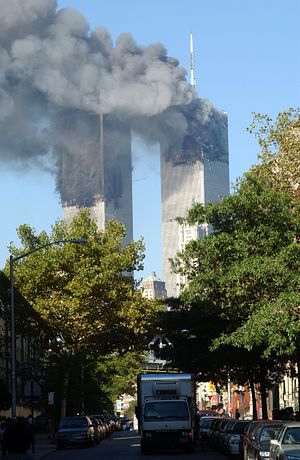China is regrouping from Saturday’s deadly terrorist attack at Kunming Railway Station, where a group of knife-wielding assailants killed 29 and injured over 140. As the wounded receive treatment at area hospitals, China’s Minister of Public Security Guo Shengkun and the head of the Commission for Political and Legal Affairs of the Communist Party of China (CPC) Meng Jianzhu are in Kunming (the capital of Yunnan province) to coordinate efforts to deal with the incident.
China’s Ministry of Public Security issued a statement saying that “a terrorist gang of eight members led by Abdurehim Kurban was responsible for the attack.” According to Xinhua’s coverage of the incident, three suspects involved in the attack have been captured and four more were killed at the scene. Chinese media outlets have been reporting since Saturday that evidence at the site showed that the attack was organized by Xinjiang separatists. Foreign Ministry Spokesman Qin Gang was a bit more specific, saying that the evidence included flags from “East Turkestan forces.” As of this writing, no particular terrorist organization has yet claimed responsibility. However, it took nearly a month for the Turkestan Islamic Party (TIP) to publicly claim responsibility for last year’s deadly incident in Tiananmen Square.
The attack in Kunming, one of the deadliest incidents to take place outside of Xinjiang, may be a watershed moment for China’s war on terror. There has been an upswing in violent incidents in China’s far western province in the past months, but as long as the violence remained limited to Xinjiang there was little effect on the nation as a whole. Saturday’s attack in faraway Kunming could completely change the calculus of both China’s leaders and the average Chinese citizen on how the country should deal with terrorism.
At Tea Leaf Nation, an e-magazine focusing on China’s social media, editors Rachel Lu and David Wertime parsed the responses on Sina Weibo. Several users have begun calling the March 1 attack “our 9-11,” China’s version of the September 11, 2001 attacks on the United States’ World Trade Center and the Pentagon. These netizens may have a point. The September 11 attacks made terrorism a major part of American public awareness, changing the way Americans go about their daily lives. Airport security has been completely revamped. Public spaces such as subway platforms are plastered will billboards bearing the “see something, say something” slogan that encourages citizens to remain vigilant. The immense death toll of the 9-11 attacks, and especially the fact that the attacks took place on U.S. soil, changed the American psyche. Terrorism was no longer seen as a distant concern but a pressing danger that could strike anyone, anywhere.
While the Kunming attack thankfully involved far fewer casualties than 9-11, there are hints that it may have a similar effect on the way China conceptualizes and deals with terrorism. The sheer unexpectedness of an attack by Xinjiang separatists in Kunming echoes the shock many Americans felt at al-Qaeda operatives wreaking havoc in New York and Washington DC.
The Global Times speculated that Kunming was attacked precisely because no one was expecting it. Security in Urumqi (Xinjiang’s capital city) and Beijing, two more predictable targets, is extremely tight, especially as the “two sessions” (annual meetings of the National Committee of the Chinese People’s Political Consultative Conference and the National People’s Congress) convene this week. If Kunming was attacked because of lax security, the obvious inference is that security needs to be ramped up all across China. The article concluded that “anti-terror efforts should be exerted across the whole country.”
China’s leaders are also calling for increased anti-terrorism efforts. Xinhua reported that Kunming’s train station has resumed normal operations, with a “heavy police presence” to provide security. There is also additional security in place at Kunming’s Changshui Airport and local primary and middle schools. The impact is not limited to Kunming, though—Premier Li Keqiang has ordered police forces across China to step up security, particularly at crowded public spaces. President Xi Jinping ordered China’s security forces “to crack down on violent terrorist activities in all forms” and to “firmly suppress terrorists’ rampant momentum.” Foreign Ministry Spokesman Qin Gang promised that China will “crackdown according to the law” against violent terrorists, “no matter who they are, what group they belong to, who they are linked to, or when and where the violence takes place.”
Even before the Kunming attack, Xinjiang’s legislature was considering new anti-terrorism laws. The incident will likely give new urgency to such laws, both in Xinjiang and on a national level. What form these laws will take is still unclear, but increased security measures seem likely. The government might also use its new State Security Council (headed by Xi himself) to coordinate domestic anti-terrorism activities among the different security services and provinces. China might also step up its international anti-terrorism cooperation efforts, perhaps resulting in increased pressure on Pakistan to root out suspected members of Uyghur separatists groups.
Meanwhile, there is concern that increased anti-terrorism efforts will unfairly target members of the Uyghur ethnic group. In the aftermath of the attack, Reuters reported that police forces entered a Uyghur district in Kuming and rounded up “dozens of people for questioning.” Some were allegedly confronted at gunpoint. Some of the Uyghurs who were interrogated said the questioning lasted for hours, but they were not harmed.
Zhu Weiqun, the chairman of the CPPCC’s ethnic and religious affairs committee, promised that China would not target specific ethnic groups. “If we end up taking our anger about this incident out on a particular ethnic group and equate one ethnic group with violent terrorism then that is completely incorrect,” Zhu told People’s Daily. He cautioned against “oversimplification” of the situation by those who “have never been to Xinjiang and are not familiar with Xinjiang.” Still, in the wake of the Kunming attacks it may be hard to convince the at-large population not to target the entire Uyghur ethnic group—a problem Muslims in the U.S. are all too familiar with.

































